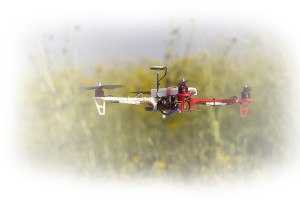Model aircraft hobbyists, research universities and commercial drone interests filed lawsuits Friday challenging a government directive that they say imposes tough new limits on the use of model aircraft and broadens the agency’s ban on commercial drone flights.
The three lawsuits asked the U.S. Court of Appeals for the District of Columbia to review the validity of the directive, which the Federal Aviation Administration issued in June. The agency said the directive is an attempt to clarify what is a model aircraft and the limitations on their operation.
The Future of Drone Use in the Insurance Industry
The FAA has been working on regulations that would permit commercial drone flights in U.S. skies for more than 10 years, but the agency is still at least months and possibly years away from issuing final rules to permit flights by small drones. Regulations for flights by larger drones are even further away.
 Part of the agency’s challenge is to distinguish between planes flown by hobbyists and those used for commercial applications, a distinction that’s become harder to draw as the technology for model planes has grown more sophisticated.
Part of the agency’s challenge is to distinguish between planes flown by hobbyists and those used for commercial applications, a distinction that’s become harder to draw as the technology for model planes has grown more sophisticated.
A law passed by Congress in 2012 directed the FAA to issue regulations permitting commercial drone flights by the fall of 2015, but prohibited the agency from imposing new regulations on model aircraft.
The FAA directive is a backdoor imposition of new regulations on model aircraft hobbyists and commercial drone operators without going through required federal procedures for creating new regulations, said Brendan Schulman, a New York attorney representing the groups that filed the lawsuits. Federal procedures require an opportunity for public comment on proposed regulations and an analysis of the potential costs of the regulations vs. the benefits.
“People who have been using these technologies for years in different ways are concerned that they are suddenly prohibited from doing so without having their voices heard, and without regard to the detrimental impact on the commercial drone industry,” he said. Schulman pointed out that hobbyists have been flying model aircraft nearly 100 years, but he knows of no instance in which a model aircraft has caused the crash of a manned plane or helicopter.
“In situations where there really is no safety issue there appears to be not just some restrictions, but an outright prohibition on activities that have been done for a long time very safely,” he said.
An FAA spokeswoman declined to comment on the lawsuits.
The lawsuits were filed by the Academy of Model Aeronautics, which represents more than 170,000 model aircraft hobbyists; the Council on Governmental Relations, an association of 188 research universities; and several commercial drone and model aircraft interests. Among them are UAS America, a fund that invests in the commercial drone industry; SkyPan International Inc., an aerial photography company; FPV Manuals LLC, a company that sells video systems for unmanned aircraft operators and an association representing commercial drone operators. All argued that the FAA policy would impede their activities, from hobby use to research and innovation.
___
Was this article valuable?
Here are more articles you may enjoy.

 Elon Musk Alone Can’t Explain Tesla’s Owner Exodus
Elon Musk Alone Can’t Explain Tesla’s Owner Exodus  Canceled FEMA Review Council Vote Leaves Flood Insurance Reforms in Limbo
Canceled FEMA Review Council Vote Leaves Flood Insurance Reforms in Limbo  Cape Cod Faces Highest Snow Risk as New Coastal Storm Forms
Cape Cod Faces Highest Snow Risk as New Coastal Storm Forms  LA County Told to Pause $4B in Abuse Payouts as DA Probes Fraud Claims
LA County Told to Pause $4B in Abuse Payouts as DA Probes Fraud Claims 